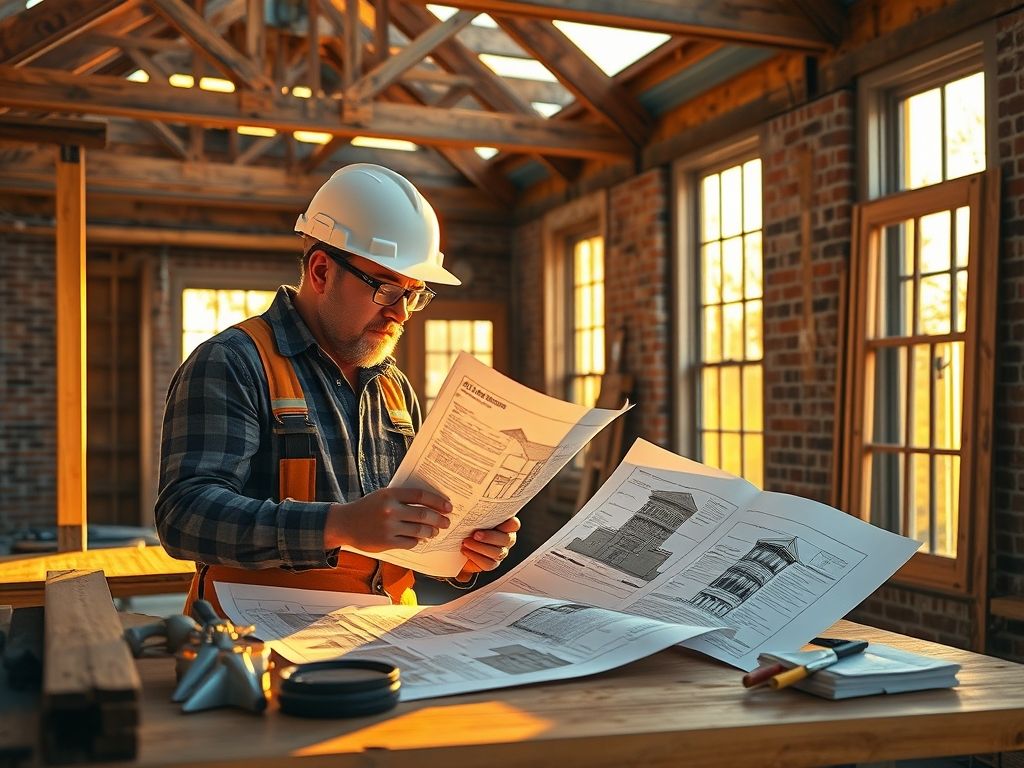What is Building History?
Building history refers to the documented account of a structure’s past, covering its design, construction, renovation, and historical significance. Understanding a building’s history is crucial for homeowners, real estate investors, and contractors in Massachusetts, particularly in cities like Boston and Worcester, where historical architecture plays a significant role in the community’s identity.
The Importance of Building History
Knowing the history of a building can enhance property value, guide renovation decisions, and preserve cultural heritage. For homeowners in Massachusetts, this knowledge can assist in maintaining the architectural integrity of their homes while ensuring compliance with local regulations regarding historical preservation.
Why Should Homeowners Care?
For homeowners in MA, understanding building history is vital for several reasons:
- Property Value: Homes with a documented history often retain or increase in value. Prospective buyers are drawn to properties with unique stories.
- Cultural Significance: Many structures in Massachusetts hold historical value. Preserving these buildings contributes to the community’s cultural landscape.
- Renovation Guidance: Knowledge of a building’s history can inform renovation choices, helping homeowners maintain its original character.
How is Building History Documented?
Building history is typically documented through:
- Architectural Surveys: These reports detail the design elements, materials, and historical significance of buildings.
- Historical Records: City archives, local libraries, and historical societies often maintain records that provide context for the building’s past.
- Oral Histories: Conversations with previous owners or community members can reveal unique stories about the property.
Practical Applications of Building History
Understanding building history can be practically applied in various scenarios, including:
- Renovation Projects: When planning renovations, consider the building’s original style and materials. For example, a Victorian home in Somerville may benefit from restoration using period-appropriate fixtures.
- Real Estate Investments: Investors should research the history of properties to identify potential risks and opportunities. A building with a positive historical narrative may attract higher offers.
- Community Engagement: Local residents can engage with their neighborhoods by sharing stories of historical buildings, fostering community pride.
Connecting Building History to Other Concepts
Building history is interconnected with various other concepts within the construction and real estate sectors:
- Architectural Styles: Understanding different architectural movements—such as Colonial, Federal, or Modernist—can provide insight into a building’s design and historical context.
- Preservation Practices: Historical preservation efforts are often informed by the building’s history, guiding decisions on restoration and maintenance.
- Urban Development: Knowledge of building history can influence urban planning and development decisions, ensuring that new projects respect historical contexts.
How to Utilize Building History in Everyday Life
For homeowners and contractors in Massachusetts, utilizing building history can lead to better decision-making:
- Research Your Property: Before any renovation, gather information on your building’s past. Check local archives or consult historical societies.
- Engage with Local Experts: Collaborate with architects and preservationists who specialize in historical buildings to ensure your renovations are respectful of the structure’s history.
- Participate in Community Events: Join local historical tours or workshops to learn more about your neighborhood’s architectural heritage.
Conclusion
Understanding building history is essential for homeowners, investors, and contractors in Massachusetts. It not only enriches personal knowledge but also enhances property values, guides renovation choices, and fosters a sense of community. By acknowledging the stories behind the structures we inhabit, we can ensure that our homes and neighborhoods reflect their rich historical tapestry.
Related Concepts
- Architectural Preservation: Techniques and practices aimed at maintaining the integrity of historical buildings.
- Real Estate Valuation: The process of determining a property’s market value, often influenced by its historical significance.
- Urban Regeneration: The revitalization of urban areas, often incorporating historical preservation elements.
As you reflect on the importance of building history, consider what stories your home tells and how you can honor its past while enhancing your living experience today.







